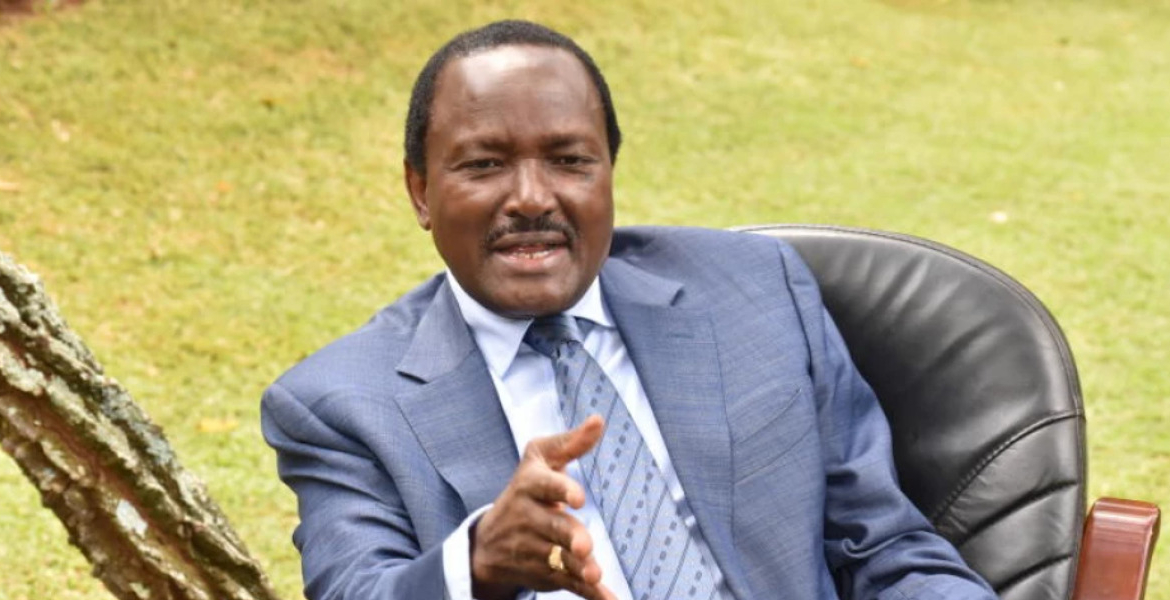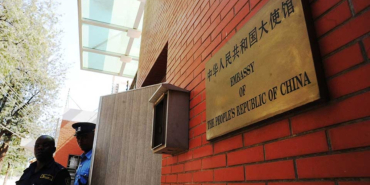Kalonzo Demands Kindiki’s Resignation After Court Faults Gachagua’s Impeachment

The Kenyan political landscape is facing renewed instability after a recent Court of Appeal decision cast doubt on the impeachment proceedings against former Deputy President Rigathi Gachagua.
The ruling has ignited a fierce debate over the legality of his removal, prompting calls for the resignation of current Deputy President Kithure Kindiki, and exacerbating existing tensions surrounding the reconstitution of the Independent Electoral and Boundaries Commission (IEBC). The Court of Appeal's judgment, delivered on Friday, May 9th, found that Deputy Chief Justice Philomena Mwilu exceeded her constitutional authority by appointing judges to oversee petitions related to Gachagua's impeachment.
According to the court, the power to constitute such a judicial panel rests solely with Chief Justice Martha Koome. This procedural irregularity has raised questions about the legitimacy of Gachagua's removal from office and fueled demands for Kindiki's resignation, with opposition figures arguing that the ruling effectively creates a situation where Kenya has "two deputy presidents." Wiper Party leader Kalonzo Musyoka has emerged as a leading voice in this debate, publicly calling for Kindiki's resignation following the appellate court’s decision.
Speaking on Sunday, May 11th, Kalonzo asserted that Kindiki should respect due process and step aside to allow legal proceedings concerning Gachagua's removal to proceed without impediment. Musyoka took to the social media platform X (formerly Twitter), stating that the court's decision exposed "unlawful and political manipulation" in Gachagua's removal. While the court ruling does not automatically reinstate Gachagua, it effectively resets the legal process, necessitating a fresh adjudication by a constitutionally sanctioned judicial bench.
The Court of Appeal has directed that the petitions be returned to Chief Justice Koome, who will determine how the case proceeds – whether through the previously appointed judges or a completely new panel. The Court of Appeal, however, has dismissed Gachagua's request for an entirely new set of judges, finding insufficient legal grounds to disqualify those previously assigned. This means that the existing judicial panel could potentially oversee the case, albeit under a restructured process.
Addressing a congregation in Juja on Sunday, May 11th, Gachagua expressed confidence in the legal system, stating that he believed the judiciary would "rescue" him and that "justice will prevail for the people of Kenya." Beyond the uncertainties surrounding the deputy presidency, political tensions have also escalated over the reconstitution of the IEBC. On Monday, May 12th, Tana River Senator Danson Mungatana strongly criticised Kalonzo Musyoka, accusing him of undermining public trust in Kenya's electoral and judicial institutions.
Speaking on a local media station, Mungatana accused Musyoka of making reckless statements that could erode confidence in independent government agencies, particularly the IEBC, judiciary, and police. Mungatana emphasises the importance of strengthening institutions rather than politicising them, arguing that leadership may change, but national institutions must remain solid and dependable. The senator defends the selection process for the newly appointed IEBC commissioners, stating that it adhered to the framework established in the National Dialogue Committee (NADCO) agreement, which was ratified by both houses of Parliament and provided a structured roadmap for IEBC appointments.
However, Kalonzo has raised concerns about irregularities in the process, suggesting that political favouritism played a role in determining nominees. Mungatana counters these claims by arguing that delays in IEBC reconstitution were caused by Wiper Party's internal disputes, alleging that Kalonzo had stalled the formation of the selection panel until a nominee aligned with his political preferences was appointed. Mungatana further challenges Kalonzo's objections to Noor Hassan’s nomination, implying that they might be rooted in personal or regional biases.
Mungatana also defends the proposed IEBC chairperson, Erastus Edung Ethekon, arguing that his relatively low profile should not disqualify him from leading the electoral commission. While some opposition figures have expressed concerns over his nomination, Mungatana dismisses fears of undue influence and calls for trust in the electoral process. The IEBC selection process has been scrutinized, with accusations of last-minute alterations in candidate lists.
Mungatana dismisses claims of irregularities, arguing that objections should have been raised earlier in court rather than after the final list was submitted. He further rebuked Kalonzo's criticisms, questioning whether opposition leaders only consider the process fair when their preferred candidates are selected.








Add new comment